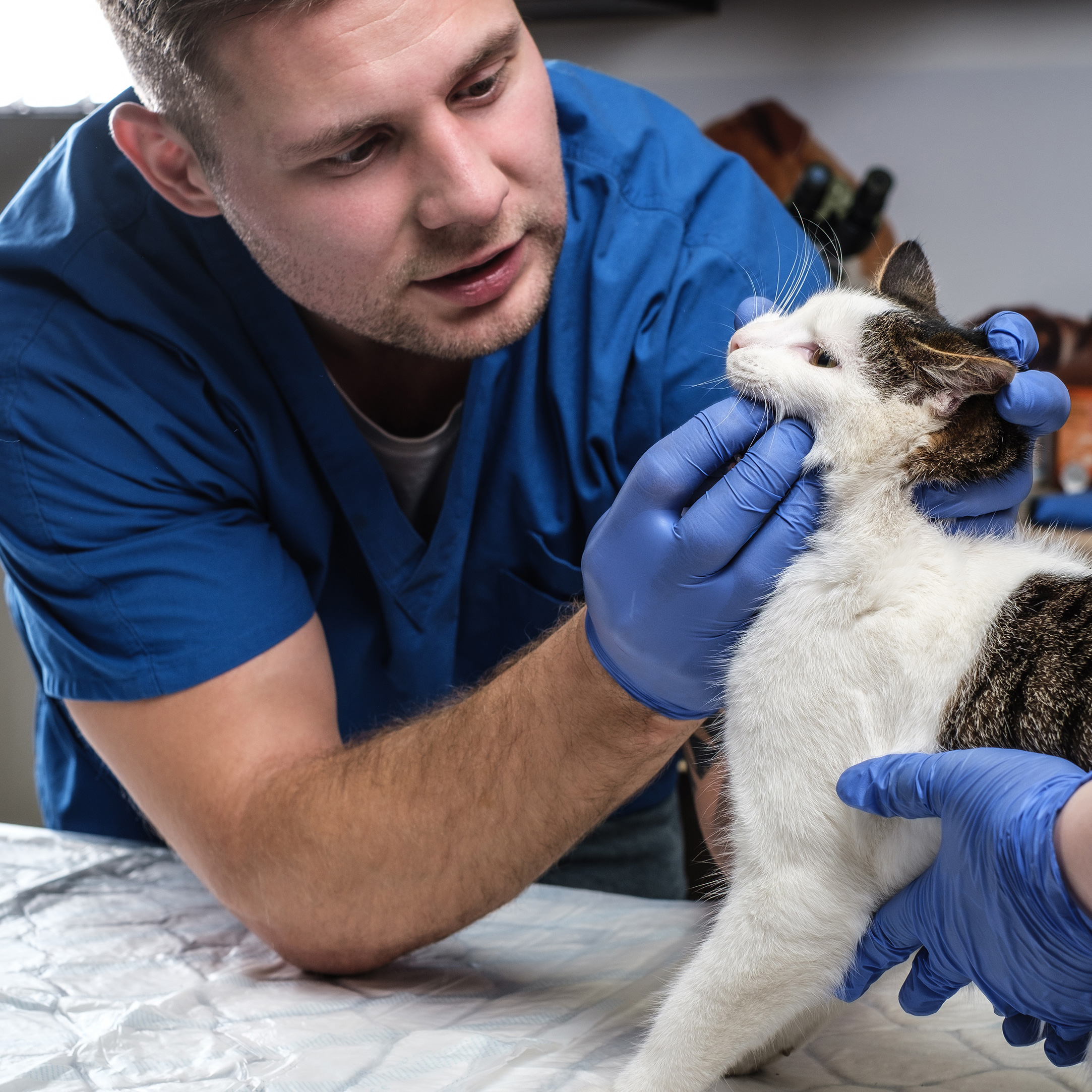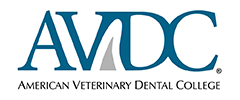What is a Board Certified Veterinary Dentist™?
Board Certified Veterinary Dentists™ are veterinarians who have completed a doctorate in veterinary medicine and surgery ( a 4 year medical degree) after years of college(often 4 years) and then complete a formal training program (a residency) in veterinary dentistry under the direct supervision of a Diplomate Residency Director. Before they are called a veterinary dental specialist they must complete all AVDC® training requirements and pass the AVDC® examination.
A Diplomate of the American Veterinary Dental College® (AVDC®) is a veterinarian who has been certified by AVDC® as having demonstrated specialist knowledge and expertise in veterinary dentistry.
AVDC® is recognized as the specialist certification organization in veterinary dentistry in North America by the American Board of Veterinary Specialties. AVDC® diplomates are veterinary dental specialists.

The Diplomates of the AVDC® provide specialist dental care for patients. Please contact your local board certified veterinary dentist for more information on your pet.
The primary objectives of AVDC® are to determine the standards required for recognition of board certified veterinary dental specialists and to conduct the credentials review and examination procedures necessary to identify veterinarians who have reached the specialist veterinary dentist standard.
In addition to expert care of individual patients provided by Diplomates, the AVDC® plays a major role in prevention of oral disease by sponsoring the Veterinary Oral Health Council (VOHC) which awards the VOHC Seal of Acceptance to oral home care products that meet preset standards of effectiveness in dental plaque and calculus control.
Dental Diseases In Animals
Dental disease is often described as a silent disease as periodontal disease can progress rapidly without the patient showing any obvious clinical signs. Patients with dental disease can continue to eat normally and may not let you know they are in pain. Specialists see many patients with broken teeth that have not changed their eating behavior or their daily routine. A thorough examination under anesthesia including radiographs may reveal dental disease that is not obvious in the exam room.
Oral and dental diseases unfortunately are very common in companion and performance animals. In fact, periodontal disease (gum disease) is the most common clinical condition in companion animals. It causes bad breath, oral pain, behavioral changes such as reduced appetite, and may affect distant organs such as the kidneys, liver and heart. For more information about periodontal disease in companion animals, see VOHC.
In addition to periodontal disease, many other abnormalities can affect the mouth and teeth. Has your pet had its mouth examined recently? If not, check with your veterinarian, who will refer you to a Diplomate of the AVDC® when necessary. Good oral health is an important component of good general health for your pet!
